2019 APS Janet Taylor Spence Awards for Transformative Early Career Contributions
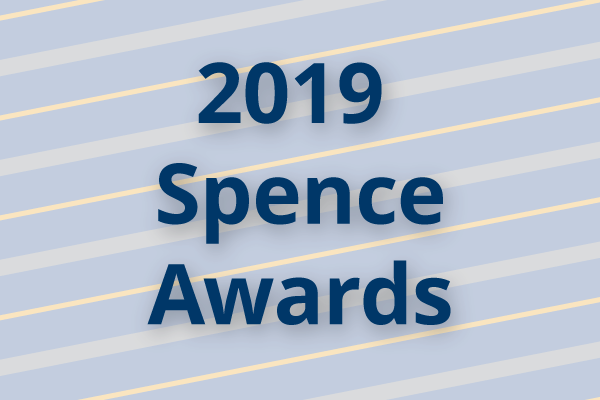
Eight psychological scientists have been recognized with the 2019 APS Janet Taylor Spence Awards for Transformative Early Career Contributions for their cutting-edge research on fields varying from the development of decision-making skills to mathematical models of happiness and how we rationalize disturbing realities. The award, named for APS’s first elected president, honors the most creative and promising researchers who embody the future of psychological science.
This year’s recipients shared their experiences and ongoing research with the Observer. The awards were presented at the 2019 APS Annual Convention, May 23–26, in Washington, DC.
Luke Chang – Mina Cikara – Molly Crockett – Katherine Ehrlich – Willem Frankenhuis – Jon Freeman – Michael Treadway – Scott Vrieze
Luke Chang
Dartmouth College
cosanlab.com

Luke Chang
My research is focused on understanding the psychological and neurobiological mechanisms underlying emotion and social interactions. For example, what are emotions and how do they affect our social interactions? How do we learn about others’ mental states, beliefs, and feelings? How do we encode, compress, and transmit this information to others? Our laboratory adopts a unique approach in addressing these questions.
We attempt to study emotions and social interactions using increasingly naturalistic experimental designs and rely on computational models to aid in quantifying and testing our hypotheses in these complex environments. Much of our work requires novel measurement and analytic techniques, and we are committed to developing open-source tools to aid in studying these social and emotional processes. Ultimately, we hope that our work will help improve our understanding of interpersonal relationships, dysregulation of affect in psychiatric disorders, and the mechanisms underlying the therapeutic effects of provider-client interactions.
Our laboratory has spent the past few years developing a collection of new methods to study real-time social interactions using web applications, mobile apps, wearable sensors, language, and facial expressions. We are excited to use these tools to tackle many understudied questions pertaining to group decision making, belief transmission, conversation, collective memory, shared affective experiences, and gossip. Read the full interview with Luke Chang.
Mina Cikara
Harvard University
intergroupneurosciencelaboratory.com
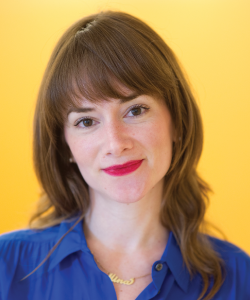
Mina Cikara
I am fascinated by how tribalism shapes people’s thoughts, emotions, brains, and behaviors. Specifically, I study how processes such as empathy, cooperation, and communication break down when the social context shifts from “me and you” to “us and them.” I’m equally interested in the behavioral consequences when these processes break down, including discrimination, conflict, and aggression. My approach integrates classic and contemporary theories of intergroup relations with cognitive neuroscience and computational approaches to discover, for example, how people overcome their aversion to harm in order to hurt out-group members, how the mind and brain represent “us” and “them,” and how we should go about reducing intergroup bias and conflict.
An overwhelming amount of evidence indicates that humans are, by default, cooperative, moral, and deeply averse to harming others. And yet, by some counts, over more than 200 million civilians have been killed in acts of genocide, war, and other forms of group conflict over the last century alone. How do we reconcile humanity’s tendency toward good with its capacity for the unspeakable? Since I was 10, when my parents began housing a series of family members seeking asylum from the Yugoslav wars, I have understood that the line between these competing impulses is far dimmer than most people are willing to entertain. Intergroup dynamics fundamentally reshape people’s views of what is acceptable or fair and therefore represents a critical boundary condition on our most cherished theories of morality and justice. This is why I use intergroup contexts as a lens to understand when people are good, when they are bad, and why. Read the full interview with Mina Cikara.
Molly Crockett
Yale University
crockettlab.org
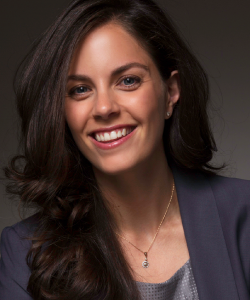
Molly Crockett
Blaise Pascal described human beings as “the glory and scum of the universe.” Each of us carries blueprints for an astonishing range of social behaviors, from the heroic to the atrocious. My research seeks to understand this paradox by studying the cognitive building blocks of human morality, including social learning, impression formation, empathy, moral judgment, and decision-making. I draw upon methods and insights from social psychology, behavioral economics, computational neuroscience, and philosophy.
Lately I’ve been thinking deeply about the psychology of moral narratives. Humans are natural storytellers and there is evidence that our sense of self is narrative in structure. My lab is currently working on developing a cognitive neuroscience of moral narratives. How do we construct stories that enhance or hinder our sense of ourselves as moral creatures? How do moral narratives shape social conflict and reconciliation? With the rise of smartphones and social media, our collective attention is becoming ever more consumed by the stories on our screens. I hope to better understand how these stories can be harnessed for social progress. Read the full interview with Molly Crockett.
Katherine Ehrlich
University of Georgia
research.franklin.uga.edu/ugahealthlab
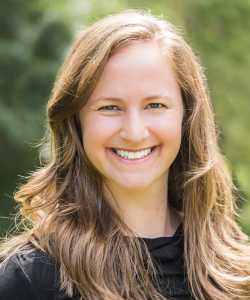
Katherine Ehrlich
I am a developmental health psychologist whose research focuses on how social experiences, such as poverty, family experiences, and chronic stress, are associated with mental and physical health across the lifespan. I am also interested in immunologic mechanisms that might help explain how social experiences “get under the skin” to influence health. More recently, my work has broadened to include examination of how various stressors might be linked to the body’s production of antibodies following vaccination. This research provides an in vivo test of adaptive immunity and allows us to examine how life experiences might influence the immune system.
I’m very excited about our lab’s progress in designing vaccination studies with children and teens. We benefited from collaborators on campus who could help us understand measures of adaptive immunity (a new area for our lab), and we are just beginning to analyze data from the 2018–2019 flu season. Although youths generally have a robust response to vaccinations, we have some preliminary evidence that chronic stressors may reduce antibody production for several influenza strains. We are excited to take a closer look at what kinds of stressors appear to be most toxic for youth, as well as whether there are any protective factors that can offset these stressful experiences. Read the full interview with Katherine Ehrlich.
Willem Frankenhuis
Radboud University Nijmegen, The Netherlands
ru.nl/bsi/research/group-pages/deep-lab
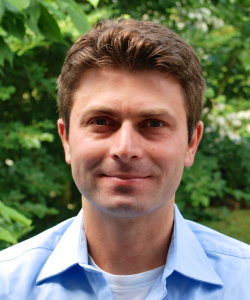
Willem Frankenhuis
I study skills and abilities that develop in response to adversity. Conventional instruments may not measure these “hidden talents.” My applied goal is to leverage these skills and abilities in educational and work settings.
Some of my childhood friends grew up in harsh conditions. I once saw one of them respond violently to a (perceived) social transgression. I was dismayed. His behavior was impulsive and resulted from poor judgment — or so I thought. Later that day, he turned to me and said: “I know you don’t like what you saw. People think I’m crazy. But where I grew up, I had to bite when people took my stuff. Otherwise I would lose everything.” He read my mental states, described his strategies and abilities, and explained these as an adaptive response. Similar reflections exist in ethnographies and interviews. This complexity is overlooked when only viewing such behaviors as maladaptive. Of course, we do want to change harmful behavior. Therefore, I ask how stress-adapted strategies and abilities can be used for positive ends. This is hard to imagine for violence but easier to imagine for reading other people’s thoughts and feelings, finding creative solutions with limited means, multitasking in a chaotic environment, and solving other challenges that are prevalent in harsh environments. Read the full interview with Willem Frankenhuis.
Jon Freeman
New York University
psych.nyu.edu/freemanlab
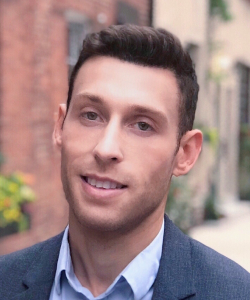
Jon Freeman
I’m interested in the cognitive and neural mechanisms that allow us to make sense of other people. When we encounter others, we instantly make any number of social judgments. For example, we categorize others into social groups, perceive their emotions, and infer their personality. We often arrive at rich, elaborate impressions and form an internal model of another person from even the most minimal cues. All the while, we’re rarely aware that we’re making these judgments, and we also have little conscious access to the specific cues that drive them. My lab’s research aims to understand the mechanisms that drive such split-second social perceptions and, in turn, how they drive behavior.
We use functional neuroimaging, behavioral paradigms (e.g., real-time behavioral techniques such as mouse tracking), and computational modeling to investigate how a variety of social cognitive and visual processes shape perceptual and interpersonal decisions. We try to take an interdisciplinary and multilevel approach to examine these questions, incorporating insights across social psychology and the cognitive, vision, and neural sciences. My lab’s research is also currently taking additional directions at the juncture of social cognition, vision, emotion, and decision making. Read the full interview with Jon Freeman.
Michael Treadway
Emory University
treadlab.org
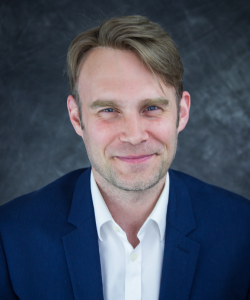
Michael Treadway
Every day we make hundreds of decisions about when and how to invest our effort to best achieve our goals. This process is so fundamental yet poorly understood. How does the brain adjudicate between all the competing options and opportunities with which we are faced? This question has long fascinated me as a cognitive neuroscientist and remains a central focus of the lab. As a clinician, however, I have been even more intrigued by how this process breaks down in mental disorders. I have sat across from numerous depressed patients who tell me that they are too unmotivated to get out of bed or even walk across the room to answer the phone. How does this happen? What is altered in these effort-based decision making circuits when people become stressed or depressed that makes routine tasks seem impossibly overwhelming? These are the questions that drive my research program.
A core question in clinical psychology is why some people develop mental illness and others don’t. Even when equating for a host of external and internal factors, individual differences predominate. While my early work focused on the possible role of dopamine dysfunction in the pathophysiology of motivational deficits in depression, a nagging question had always been why the dopamine system was vulnerable in a subset of depressed patients. A recent set of studies begun since I joined Emory have focused on the role of the immune system in altering dopaminergic reward circuitry. Most recently, this line of work has included the adoption of an induced pluripotent stem cell (IPSC) model to identify personalized genetic vulnerabilities to the effects of inflammation on IPSC-derived neurons. I think this type of approach has tremendous potential for bringing the “precision medicine” revolution to the field of mental health. Read the full interview with Michael Treadway.
Scott Vrieze
University of Minnesota
genome.psych.umn.edu
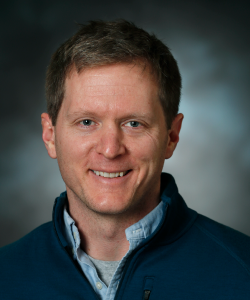
Scott Vrieze
My research interests center on parsing and understanding etiology in mental illness when experiments are infeasible. We use various genetically informative designs to do this, ranging from twin/adoption studies to population studies with measured genetic relatedness to transgenic animal studies. To improve our understanding of environmental influences, we also work to incorporate new measurement technologies to obtain improved measures of environmental context (like GPS location) to complement self-report questionnaires.
The ultimate goal, for me at least, is to make inroads to understand gene-environment interplay in human behavior, with a focus on mental illness and addiction. That’s both an old question and a tall order, but now as ever it is an exciting time to be a clinical psychologist and behavioral geneticist. We are working with new data-collection techniques and experimental tools that rapidly generate a large amount of information on a large number of people (e.g., genome sequencing, electronic health records) or in model systems (e.g., CRISPR’d cell lines or model organisms) that allow new and powerful approaches to old questions. Read the full interview with Scott Vrieze.





APS regularly opens certain online articles for discussion on our website. Effective February 2021, you must be a logged-in APS member to post comments. By posting a comment, you agree to our Community Guidelines and the display of your profile information, including your name and affiliation. Any opinions, findings, conclusions, or recommendations present in article comments are those of the writers and do not necessarily reflect the views of APS or the article’s author. For more information, please see our Community Guidelines.
Please login with your APS account to comment.